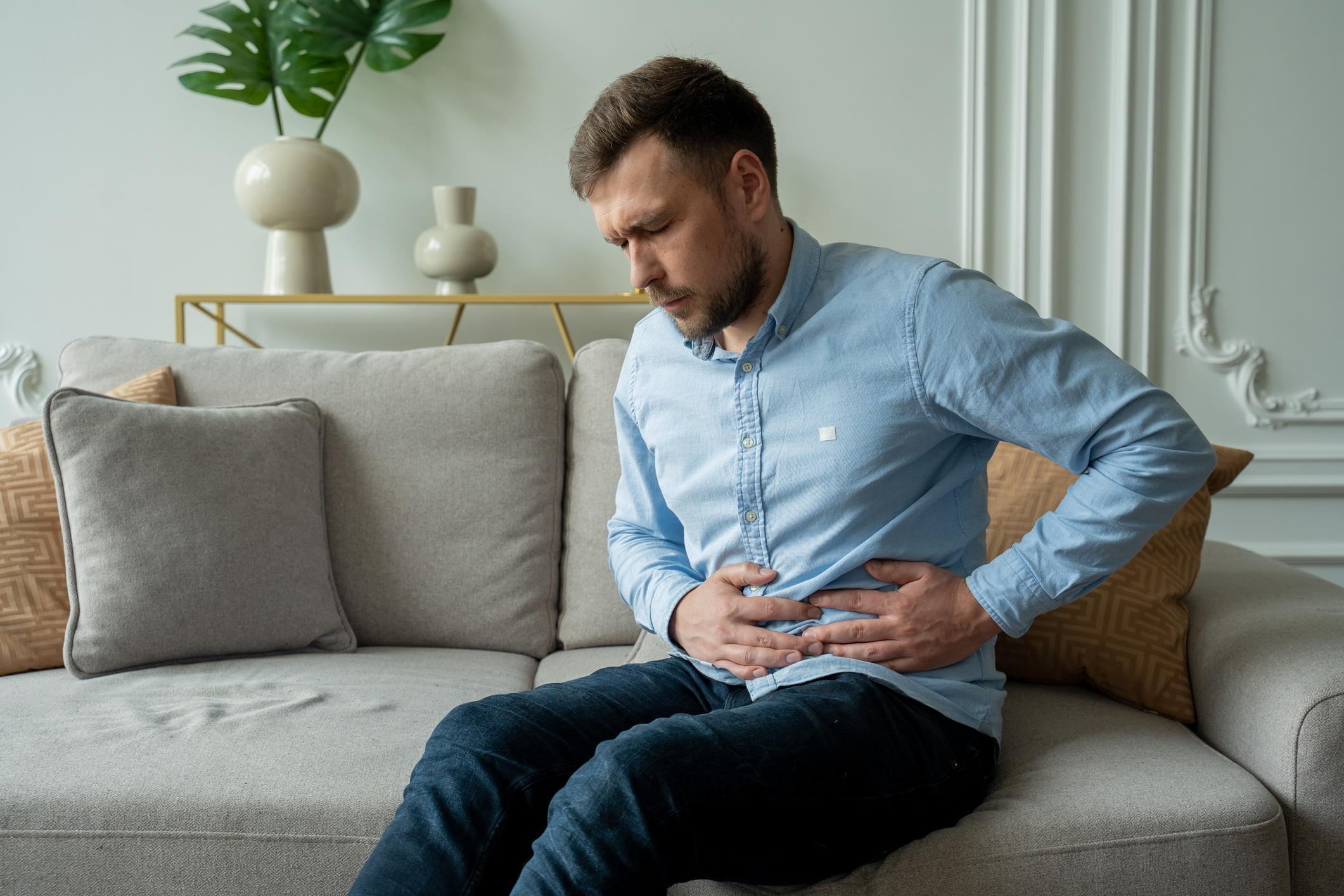Deficiencies, stress, microbiota… Mathieu Bouarfa, natural health specialist and founder of Nutrastream, enlightens us on the health benefits of food supplements, such as magnesium, vitamin D and zinc.

What are food supplements, cocktails of vitamins, minerals and plants used for? How to take them? How to spot unfounded promises? Answers from Matthew Bouarfabiologist and biochemist specializing in natural health, founder of Nutrastream and author of Food supplements – Your health revolutionpublished by Marabout at the end of September 2024.
Why Doctor: Why are food supplements necessary today in your opinion?
Mathieu Bouarfa: A food supplement (CA) has two objectives. On the one hand, it has a nutritional role, namely filling a supposed or proven deficiency. Studies show that they are numerous within the French population: 80% lack vitamin D, for example. On the other hand, it has a physiological role: we do not lack this or that micronutrient but we take it to limit discomfort, boost the body, support the organism, etc. CAs are essential in this prevention approach, because the current diet is rarely sufficient to provide good levels of vitamins and minerals: fruits and vegetables are picked before their maturity, intensive agriculture favors yield, quantity rather than quantity. quality… There are also medications, which draw on vitamins and minerals, or the intestinal microbiota, which absorbs vitamins and minerals less well when it is unbalanced. Not to mention the stress! Even if we have a healthy lifestyle and a perfect diet, being stressed on a daily basis draws a lot of vitamins and minerals. Magnesium, in particular, is excreted through sweat. CAs therefore have their place in taking care of their health.
How to recognize deficiencies in this or that nutrient?
There are several solutions. The doctor can ask the patient about his eating habits: if he never eats seafood or does not salt his dishes, he may have an iodine deficiency (like 70% of the population), which is dangerous for the patient. nervous system, skin, thyroid… Some signs such as fatigue can indicate a lack of magnesium, but others are not specific, such as drooping eyelids, which can be due to a lack of magnesium, but also calcium or sleep. Finally, the blood test may be relevant but only for certain CAs, such as copper, manganese, iron or even calcium. These have a strictly nutritional role, aiming to fill in deficiencies: using these ACs makes no sense if you don’t lack them. But what I am trying to emphasize is that you should not wait until you are deficient to act, because when you are deficient, it is sometimes extremely difficult to raise the levels with the CA dosage, notably vitamin D or iron.
Nothing will replace the three pillars of diet, sleep and physical activity, but CA can be a patch and support the body.
They would act on sleep, digestion, immunity, stress, the skin… How can ACs improve daily life?
Nothing will replace the three pillars of diet, sleep and physical activity, but CA can be a patch and support the body, while it takes time to correct the root causes (eating problems for example), or when we have moments of rush and stress, when we have difficulty sleeping… It is necessary to have a good CA base: magnesium and vitamin D, but also multi-vitamins and minerals, particularly to boost immunity before winter. Zinc and B vitamins act on stress, vitamin C on joints and sleep (it helps you sleep, contrary to popular belief), vitamin E on oxidative stress…
To go further, you can add other CAs according to your needs, in particular plants. For sleep, I recommend valerian, which promotes quality sleep and reduces stress. Melatonin can also be effective in helping you fall asleep. For stress, or when you lack energy, I recommend rhodiola, an anti-stress plant that acts more quickly than others. Concerning the beauty of the skin, zinc acts on imperfections, inflammation, oxidative stress, but also the hair. Collagen can also be interesting. Omega 3, found in small oily fish, will also hydrate the skin. But it is complicated to reach a sufficient level with diet: nine out of ten people are deficient in France, hence the interest in supplements.
How to take CAs? Is it better to supplement every day of the year or rather to take treatments lasting a few months?
No need to supplement every day, all year round. We can already do 3-month courses of essential CA: with magnesium and vitamin D, you solve 90% of the problems. These are the two biggest deficiencies, and they are also the micronutrients that most need to be together to function: vitamin D allows magnesium to stay in cells (it will be excreted less when you are stressed) and Magnesium helps activate vitamin D, whether it comes from food, the sun, light bulbs or AC.
Concerning vitamin D, the ampoule does not really work in the long term. The European Food Safety Authority (EFSA) instead recommends providing vitamin D daily, at lower dosages. And this in many cases A ampoule of one or two months may be necessary when you are severely deficient, to correct very quickly, or when you suffer from osteoporosis. But the three-month ampoule is downright problematic, because the lifespan of vitamin D is very short: after two or three weeks, half of it is already degraded.
As for magnesium, some forms are better than others, such as magnesium bisglycinate or magnesium glycerophosphate… But magnesium oxide, which is found in marine magnesium, is only absorbed at 10 %. Marine magnesium will cost 6 euros for a month, compared to 20 to 25 for bisglycinate: quality forms cost more.
By sanitizing environments and eating ultra-processed foods, our intestinal microbiota is becoming more and more unbalanced.
What about food supplements based on probiotics?
We have billions of micro-organisms within us, particularly in the intestine: it is a natural balance between good and bad bacteria. The good bacteria are probiotics, which are found in ACs, medications and fermented foods (kefir, kombucha, fermented milk, pickles, etc.). They promote better digestion or better assimilation of vitamins and minerals. They will also produce substances for us, such as certain B vitamins or gaba, a neurotransmitter which plays a key role in controlling anxiety. They therefore have an indirect effect on our stress and our mood. This is the intestine-brain axis: the intestine communicates with the brain via these micro-organisms in particular. However, today, by sanitizing environments and eating ultra-processed foods, our intestinal microbiota is increasingly unbalanced. To take care of it, I recommend eating fermented foods throughout the year, with perhaps a course of probiotic capsules two or three months out of the year. However, you should know that digestion can be complicated if you consume probiotic capsules or fermented foods, simply because our intestine is no longer used to them.

Why do you find the name “food supplements” inappropriate?
From my point of view, a food supplement is between food and medicine: the term is misleading. And the regulations are not at all adapted to the product. The EU is currently blocked on health claims on plants. Why is valerian a “food” supplement, when it is a plant, therefore phytotherapy? More broadly, why is a hormone for falling asleep, melatonin, also a food supplement? ACs should be called natural health products, like in Canada.
What are the obstacles to a public supplementation policy?
When I was young, I remember watching more prevention campaigns, for condoms, against smoking… But the public sector has become poorer and prevention is not the political priority today. Public interests are now mixed with private interests, with the pharmaceutical industry on one side, which sells medicines, and the food industry on the other, which sells ultra-processed foods. Next to it, the prevention sectors, such as CAs, are a drop in the ocean. We saw this with the Paris Olympic Games: apart from making people want to play sports, we saw few preventive public messages such as “eat fruit and vegetables”, but rather inserts for large group brands food.
The risks of overdose exist and can be dangerous, particularly of vitamin D, iron or calcium, but only if the person does not follow the instructions.
Many false promises circulate around CAs, particularly on social networks… How to decipher the true from the false?
There are still few over-promises, and most of them come from abroad. And if a brand announces, for example, that collagen can treat osteoarthritis, it will quickly be caught in the event of an inspection, with very high fines. You should know that communication on the health benefits of ACs is framed by EU claims. They have the merit of existing but some are, in my opinion, much too strict. We are allowed to say, for example, that magnesium helps reduce fatigue, but not that it has a link with sleep – even though we know that magnesium plays a role in sleep. This regulation also poses a socio-economic problem: American brands advertise on social networks when they should be subject to European regulations. As a result, we will always favor an external market…
What is the risk of CA overdose?
Since 2009, France has implemented a nutri-vigilance system which makes it possible to identify serious adverse effects of CAs. The problem mainly comes from misuse: overdoses of vitamin D, for example, can be explained by the fact that people did not listen to their doctor or respect what was written on the packaging. The risks of overdose exist and can be dangerous, particularly of vitamin D, iron or calcium, but only if the person does not follow the instructions.
If a person takes CAs all their life, is monitored to systematically have the right levels of micronutrients in the body, in addition to a very healthy lifestyle, can they hope to no longer be sick and break longevity records ?
We need to go back to basics: what is aging, and why do diseases appear? It’s all due to inflammation, oxidative stress and just stress. If we had optimal levels of vitamins and minerals in our bodies, I think we could go very far, to boost ourselves, to be in some way super-humans, and above all to age in good health.
















